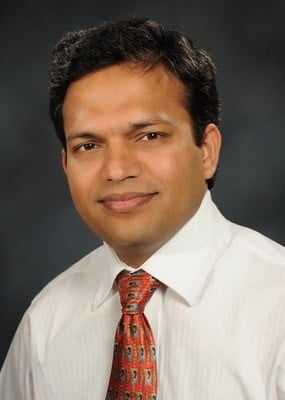
Journal Menu
► ▼ Journal Menu-
- Cancers Home
- Aims & Scope
- Editorial Board
- Reviewer Board
- Topical Advisory Panel
- Instructions for Authors
- Special Issues
- Topics
- Sections & Collections
- Article Processing Charge
- Indexing & Archiving
- Editor’s Choice Articles
- Most Cited & Viewed
- Journal Statistics
- Journal History
- Journal Awards
- Society Collaborations
- Conferences
- Editorial Office
Journal Browser
► ▼ Journal BrowserNeed Help?
Announcements
30 March 2022
Dr. Farrukh Aqil Appointed Section Editor-in-Chief of Section “Cancer Epidemiology and Prevention” in Cancers
We are delighted to announce that Dr. Farrukh Aqil, Assistant Professor of Medicine at the University of Louisville, has just taken over as Section Editor-in-Chief of Section “Cancer Epidemiology and Prevention” in Cancers (ISSN: 2072-6694).

Dr. Aqil attended the Aligarh Muslim University to earn his doctorate in Microbiology in 2006. He then moved to the United States to complete his post-doctoral training in the Cancer Chemoprevention and Control Program of Brown Cancer Center, Louisville. After his post-doctorate, he served as an Instructor at the Department of Medicine, University of Louisville, Louisville for two years. Along with his faculty position as an Assistant Professor at the University of Louisville, he has been meticulously involved with the James Graham Brown Cancer Center as an integral member.
Dr. Aqil has been involved in cancer prevention research for over 12 years and has received several awards, including the Faculty Excellence Award of the University of Louisville. Dr. Aqil has published over 80 articles in peer-reviewed journals, 13 book chapters, and has edited 4 books. He has participated in many conferences and presented his work as 80 abstracts/oral presentations/invited talks. He aims to keep up with his contributions to expand outreach in cancer research.
The following is a short Q&A with Dr. Farrukh Aqil, who shared his vision for the journal with us, as well as his views of the research area:
1. What appealed to you about Cancers that made you want to take the role as its Section Editor-in-Chief?
The fact that Cancers emphasizes the importance of transparency and reproducibility in research by publishing research on both clinical and basic science issues related to cancer research is what attracted me to the journal. I have been associated with this journal as an author, reviewer, and editorial board member and always found that it is the leading source of information on the issues that shape oncology. A question that often arises in cancer research is how we can make better progress in prevention and early detection. Cancers is one of those platforms that helps to move research in the right direction. The aspect that I think is the closest to my thought process is the importance the journal places on publishing results from all over the world with the same enthusiasm. Another aspect of Cancers is publishing meaningful negative results with the same interest as positive results. I feel that the negative results help research grow faster because we know what to avoid, so we move closer to positive outcomes.
2. What is your vision for Cancers?
My vision is to create a difference in the field of cancer research and open doors for new minds and provide them with a chance to put forth their research while not just confining experiments to positive and negative results; in the coming years, I would like to see this journal to be a platform for researchers to dissipate their knowledge and research outcomes. I would consider this as an opportunity to motivate and encourage researchers to communicate their research rationale, and I would make sure to add my expertise to every bit of research I go through.
3. What does the future of this field of research look like?
It is a well-known fact that the number of cancer patients has been increasing over the years; the deaths due to this disease are very much evident, and these numbers will continue to grow in the coming years. According to statistics, one-half to two-thirds of all cancer cases can be prevented upon the implementation of cancer prevention strategies. In my opinion, research and development in the field of cancer epidemiology and prevention is the need of the hour. Once the potential of this field is realized, the battle with cancer would be half won and would eliminate lethal exposure to existing cancer therapies. As such, it is necessary to place importance on cancer epidemiology and prevention and to increase its outreach.
4. What do you think of the development of Open Access in the publishing field?
I believe that there should be no barriers between science and readers. It should be accessible to all without any restrictions. Additionally, as this research field is taking grip, it would benefit larger masses if the progress was transparent and reachable to all of the beginners in this field.
We warmly welcome Dr. Farrukh Aqil to his new role as Section Editor-in-Chief, and we look forward to his leading Cancers to many more milestones.




